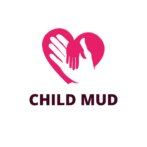Navigating the choppy waters of parenthood can be challenging, especially in situations involving legal disputes. In such cases, court-ordered parenting classes often come into play. They’re not just for parents who’ve faltered; they’re proactive measures designed to equip parents with the skills needed to raise well-adjusted children.
These classes aren’t a verdict on one’s parenting ability, but an opportunity to learn and grow. They cover a wide range of topics, from effective communication to understanding a child’s developmental stages. This article aims to shed light on what these classes entail, their importance, and how they can transform the parent-child relationship.
So, whether you’re a parent facing a court order or simply curious, let’s delve into the world of court-ordered parenting classes, and explore how they’re shaping stronger families, one session at a time.
Court Ordered Parenting Classes
 To delve further into the subject, it’s crucial to get a handle on what court ordered parenting classes entail, along with understanding the motivation behind court’s mandates on these classes.
To delve further into the subject, it’s crucial to get a handle on what court ordered parenting classes entail, along with understanding the motivation behind court’s mandates on these classes.
Court ordered parenting classes, as the name implies, are parenting courses mandated by the court. These classes generally get incorporated in legal proceedings involving family disputes, such as divorce, child custody battles, or domestic violence cases. The main goal of these classes is to enhance parenting skills and abilities, focusing on the right strategies to communicate with children, comprehend their developmental stages and handle disputes or disagreements effectively.
In these classes, experts from the field of child psychology, education, and social services impart knowledge. They cover topics such as child development, effective parent-child communication, managing stress, understanding and handling emotions, study techniques, and aspects of legal rights, responsibilities and boundaries in parenting. The duration, content, and intensity of these classes may vary, based on specific court orders and individual circumstances.
Court mandated parenting classes, thus, stand as proactive measures from the legal system, aiming to equip parents with better knowledge and skills to foster healthier, happier families, despite facing adverse circumstances. By doing so, courts believe in parent’s capacity for change, growth and improvement.
Key Components of Court Ordered Parenting Classes
 Insight into the structure and content of court-ordered parenting classes equips readers with comprehensive knowledge about these legal interventions. The classes encompass an extensive curriculum, honing multiple skills for effective parenthood.
Insight into the structure and content of court-ordered parenting classes equips readers with comprehensive knowledge about these legal interventions. The classes encompass an extensive curriculum, honing multiple skills for effective parenthood.
Court-ordered parenting classes deliver structured modules designed by childcare experts and legal authorities. It’s not a one-size-fits-all approach, as courses get tailored to parents’ unique needs, considering factors such as children’s age, family situation, and the nature of the legal matter (divorce, custody dispute, adoption cases, etc.). Subjects discussed range from understanding child development, handling childcare responsibilities, to navigating legal processes. Thus, these classes offer a holistic guide, addressing both the emotional and legal aspects of parenthood involved in the concurrent legal situations.
Skills Taught in These Classes
Not just theoretical, court-ordered parenting classes empower individuals with practical skills. Communication competence sits at the core of the learning, enabling parents to articulate their thoughts and feelings clearly, facilitating healthy connections with their children.
Benefits of Attending Court Ordered Parenting Classes
 Obligatory parenting classes provide numerous benefits — ranging from enhanced parenting abilities to legal advantages. Parenting classes, court-ordered or otherwise, yield significant enhancements in one’s parenting skills. Attendees foster a deep understanding of child development stages, from newborn to teenager. This knowledge facilitates competent decision-making about their child’s well-being. Additionally, the classes focus on the pivotal role of effective communication in parenting, guiding parents to express themselves constructively. The courses also highlight various disciplinary techniques, encouraging positive behavior from children while discouraging negative habits. Further, parents learn stress management skills, becoming better equipped to handle the pressures of raising a child.
Obligatory parenting classes provide numerous benefits — ranging from enhanced parenting abilities to legal advantages. Parenting classes, court-ordered or otherwise, yield significant enhancements in one’s parenting skills. Attendees foster a deep understanding of child development stages, from newborn to teenager. This knowledge facilitates competent decision-making about their child’s well-being. Additionally, the classes focus on the pivotal role of effective communication in parenting, guiding parents to express themselves constructively. The courses also highlight various disciplinary techniques, encouraging positive behavior from children while discouraging negative habits. Further, parents learn stress management skills, becoming better equipped to handle the pressures of raising a child.
The classes teach emotion regulation abilities, critical in diffusing conflicts and nurturing a peaceful family environment. Moreover, they learn child discipline tactfully, replacing punitive measures with effective, constructive methods. If there’s an encounter with domestic violence, protective measures and coping strategies feature in the teachings. Ultimately, these classes aim to mold parents into more patient, understanding, and resilient caregivers.

